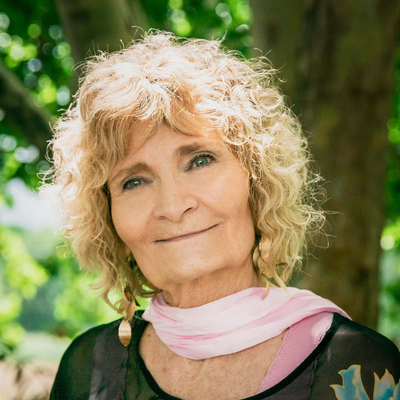The decades-long controversy over healthcare reform just seems to get more confusing for us, with many plans that fall between the two extremes of free healthcare for all (funded by a government-run program like Medicare or healthcare plans provided by privatized insurance companies) and medical services that must be paid for by the patients. On top of that is the controversy of what exactly kind of medical services should be covered by a healthcare plan, including determining what types of mental illnesses should be considered as a “legitimate” treatable disease.
The climbing rate of “deaths of despair” related to alcohol/drug/sexual addictions and homicide/suicide brings to the forefront the increasing rate of people suffering from anxiety, deep sadness, depression, loneliness, rage, self-destructive habits, antisocial tendencies, and so on. At one time healthcare plans did not even cover mental illnesses, but today mental illnesses are considered the “new normal”. The Fifth Edition of the Diagnostic and Statistical Manual of Mental Disorders (DSM-5)—which is the principal authority for psychiatric diagnoses and classification in the U.S. and is used for treatment recommendations as well as payment by healthcare providers—lists 760 classifications for psychological problems, dysfunctions, and disorders!
I believe the increase in mental illness is a by-product of a fast-paced, corporate-controlled dominant culture where large financial profits are the name of the game. In other words, I think that society is imbalanced in materialism and thus sick, causing mental illness in its citizens. However, many doctors’ contentions are that most mental problems are due to physiological causes in the brain and that if the brain is treated through various drugs and other medical treatments, the patient can get better.
Mind universally dominates matter, even as it is in turn responsive to the ultimate overcontrol of spirit. ~ The URANTIA Book
Though I agree that health insurance companies should view mental illnesses as legitimate medical conditions that need to be treated, we need to go even further in how we, as a total society, perceive illness and the treatment of it. When we citizens of a culture can change our mindsets about causes of disease and healing, then the systems within our society will change to fit that consciousness. Thus the economic, political, medical, educational, and other institutions of mainstream culture will cooperate with the expanded consciousness of the population to create more effective and efficient healthcare systems that provide for all of its citizens regardless of financial or social status.
I think that those “progressives” demanding universal and more comprehensive healthcare are correct in their perceptions of everyone needing decent healthcare coverage and that many illnesses not currently covered should be included. But even these wonderful advocates and activists for progressive change need to expand yet further still in their own understanding of health and wellness.
Though psychotropic drugs may have their place in the treatment of mental disorders, that place should be minimal. I have seen the terrible debilitating effects of various meds that are commonly used by doctors in treating so-called brain anomalies and mental illnesses. It is not a pretty sight to see a 24-year-old so convinced that she needed her meds in order to get through a day that she created even more anxiety within herself when she did not have them. And, knowing this troubled young woman for many years before she was treated for her mental distress with the three or four different psychotropic drugs she took, she seemed much worse, much sicker—definitely not better. In addition to the symptoms she already had before being medicated, after a few days of taking her meds she additionally suffered from fuzzy-headedness and lack of clear thinking, thus making her even more dysfunctional than she already was. Her perceptions of reality were so distorted that she could not even focus enough to hold down a job or pursue a route of study at a community college, even though she was encouraged to by her counselors, healthcare providers, and family members.
I have observed this worsened malady in several other people who have undergone the usual medical treatment for their psychological symptoms of unhappiness, depression, cognitive confusion, continual inner conflict, lack of internal cohesion, self-defeating cycles of thinking and behaving, ineffective coping strategies, deficient social interactions, schizophrenic tendencies, and the list goes on. I cannot help but draw the conclusion that the commonly-accepted treatments used for the various mental ailments need to be reassessed and drastically changed in most cases.
I, as well as many others, realize that most mental illnesses have to do with being self-absorbed and overly focused on selfish pursuits without a more mature sense of connection with other people that includes a sense of social responsibility. Rather than the treatment focusing on helping someone “feel” better through various psychotropic drugs and therapies that dwell only on the individual’s so-called needs with no or very little accountability, treatment needs to include assessing more thoroughly the thoughts and attitudes that a patient has that is preventing him or her from healing and composing a better life for himself or herself, which includes being able to contribute to the healthy progress of the society he or she lives in.
There are increasing studies in the areas of psychology and neuroscience that indicate we all need to see the brain and consciousness in a totally new way. Studies are showing that the mind (consciousness) continues to exist and function in some manner when the brain is no longer operating. This being the case, treatment of any mental illness must go beyond just looking at the brain. Though treating the anomalies of the brain may be effective in some cases, many so-called mental illnesses are a problem of consciousness, of thoughts and values, of world views and philosophies.
If consciousness exists outside of the brain’s usual electrical and chemical processes, then it is the consciousness that must be treated rather than the brain in most cases of mental maladies. I realize that there are cases where there is brain damage and physical anomalies that cause certain mental difficulties that can effectively be treated by surgery or other treatments dealing directly with the brain, even at times certain drugs. But in most cases, treatment for mental dysfunctions and disorders should be addressed in the consciousness, which will lead to the patient being empowered to make the changes needed in his or her responses to his or her physical and social environments. As the individual’s consciousness shifts into healthier and more truthful and realistic ways of perceiving reality, his or her various emotional, cognitive, and behavioral dysfunctions will shift into more effective and healthy responses to circumstantial reality. Energy/action follows thought.
Besides in neuroscience, studies in the areas of physics, chemistry, biology, medicine, psychology, sociology, and education are discovering that energy does indeed follow thought and that the consciousness of an individual determines other areas of his or her physical health. It continues to become more evident that if a person begins to change his or her mind in certain areas that the chemicals and systems in the body also begin to change. Simply put, peace of mind, cognitive clarity, happiness, a feeling of being loved, and a sense of purpose in one’s life make a person healthier not only psychologically but also physically.
The universe is neither mechanical nor magical; it is a creation of mind and a mechanism of law. But while in practical application the laws of nature operate in what seems to be the dual realms of the physical and the spiritual, in reality they are one. ~ The URANTIA Book
Many are aware of the decades of research and experimentation that Dr. Masaru Emoto has done with water molecules all over the planet that show how even water molecules change with the consciousness of the people around them, improving and becoming more healthy-looking when human thoughts and/or intentions of goodness and love are practiced in the vicinity of the water being tested. And the more individuals involved, the more noticeable the change. Various studies of people’s thoughts and actions around plants also reinforce the truth that human thought and motives affect plants, with them withering and showing stress with the more negative thoughts and plants showing healthiness and stimulation with the more positive attitudes. State of mind (consciousness) does indeed move all things, but in which direction depends upon the mindset.
Some geneticists are discovering that the thoughts of an individual can even change his or her DNA, thus the possibility of health-promoting thoughts overcoming disease-promoting genes. It seems that this truth has been known among some people for hundreds of years. For example, an old German proverb states: “It is the mind that ennobles, not the blood.” A Chinese proverb proclaims “One sincere thought can move both Heaven and Earth.” Ascension science, the science of the Divine New Order, simply concurs that it is consciousness (mind) that moves all things, that energy does indeed follow thought.
If healthcare providers—from doctors to counselors to hospital administrators to insurance companies—had the understanding of the ancient Chinese proverb that “A mind enlightened is like the halls of Heaven; a mind in darkness is like a realm in Hell”, we would have a healthcare system that would look very different than the one we have now in this country, which is more of a “disease-care” system rather than a system of true healing. The costs of healthcare would be drastically reduced and the treatments for both physical and psychological ailments would start with the root of the problem, the consciousness or mindset of the patient. A diseased person must bring her mind out of darkness and the realm of Hell into enlightenment and the halls of Heaven, so to speak.
Long-time activist, scholar, writer, and filmmaker for sustainability and community, Paul Freundlich, declares that we of this earth need a new consciousness, a “re-valuing of our values”, in order to change how the “cornucopia of capitalism” manifests disaster, destruction, and desecration for our environment and for most of the people on our world. If we are to change the serious worldwide problems of “overpopulation, diminishing natural resources, deteriorating infrastructure, escalating climate risk, and desperation caused by widening economic disparities”, we will need to change our understanding of reality and grow into a consciousness of love and care for others, stewardship for our environment, and interdependence and cooperation.
That is a huge order, for the status-quo consciousness of selfishness, greed, disregard for environmental and human health, and competition is imprinted so deeply in the entrenched financial, political, and social power structures that small groups of individuals need to drop out of that existing structure and build alternative cultures. When starting a new lifestyle or new business or even a whole new culture, we need to look at “affordability” in a new way and not run business as usual.
As Paul Freundlich points out, affordability must include what we can afford as a planet, a nation, a neighborhood. Affordability must mean also sustainability, and all of our actions and practices must consider short- and long-term impacts on the environment and on society. The dishonorable practices that unsustainable businesses do under the old-order consciousness of making as much money as possible, regardless of the social and environmental costs to the people and land of the area, need to shift to a more whole-systems thinking approach in using our human and natural resources.
The universe of universes in toto is mind planned, mind made, and mind administered. But the divine mechanism of the universe of universes is altogether too perfect for the scientific methods of the finite mind of man to discern even a trace of the dominance of the infinite mind. For this creating, controlling, and upholding mind is neither material mind nor creature mind; it is spirit-mind functioning on and from creator levels of divine reality. ~ The URANTIA Book
The foundation of a new order of thinking and doing must be based on the principles of interdependence and sustainability. Actually, from an even bigger and more expansive foundation, the new consciousness must be based on divine administration principles that include also the principles of ascension science and the laws of divine pattern, which embody goodness, beauty, and health for all as well as acknowledgement of the Creator of all.
I agree with American author, philosopher, and co-founder of The Foundation of Mind Research, Jean Houston, that we humans could make a consciousness leap into a “renaissance of spirit”. I think this must happen in order to save our world from total destruction, but it requires reuniting with the divine mind circuitry that brings our consciousness up into more spiritized awareness, and that may take some more suffering on our part as individuals as well as a whole people in order to awaken enough of us to the need of reconciliation with God and the ways of divine pattern. Ms. Houston conjectures that “Perhaps it is during renaissance eras that we may actually be seeing the Mind of the Maker determining that the time has come for a major jump in culture and consciousness and inserting social and psychic enzymes to help effect those transitions. The key to all of this is the renaissance of spirit. . . .” This is “when we truly know ourselves as Godseeds ready to emerge into Godselves.”
Personality disorders are really disconnections from our unique, individual God-given personality circuitry. We, as individuals and as a civilization, can heal from the mental illness of myopic, misdirected, selfish thinking that has created a mechanistic and materialistic dominant planetary culture, which has endangered all life on our world. The menace of materialism can be lessened substantially as person by person, group by group we change our own mindsets into something much more truthful and expansive. We all need, as Jean Houston emphasizes, “liberating thoughtways that launch understanding motivation and problem solving beyond their constricting cultural and even instinctual preconditioning.”
Van of Urantia ’s book Who’s Afraid Of The Big Bad Wolf? — A Handbook On How To Defeat The 1% can be purchased at http://globalchangetools.org


